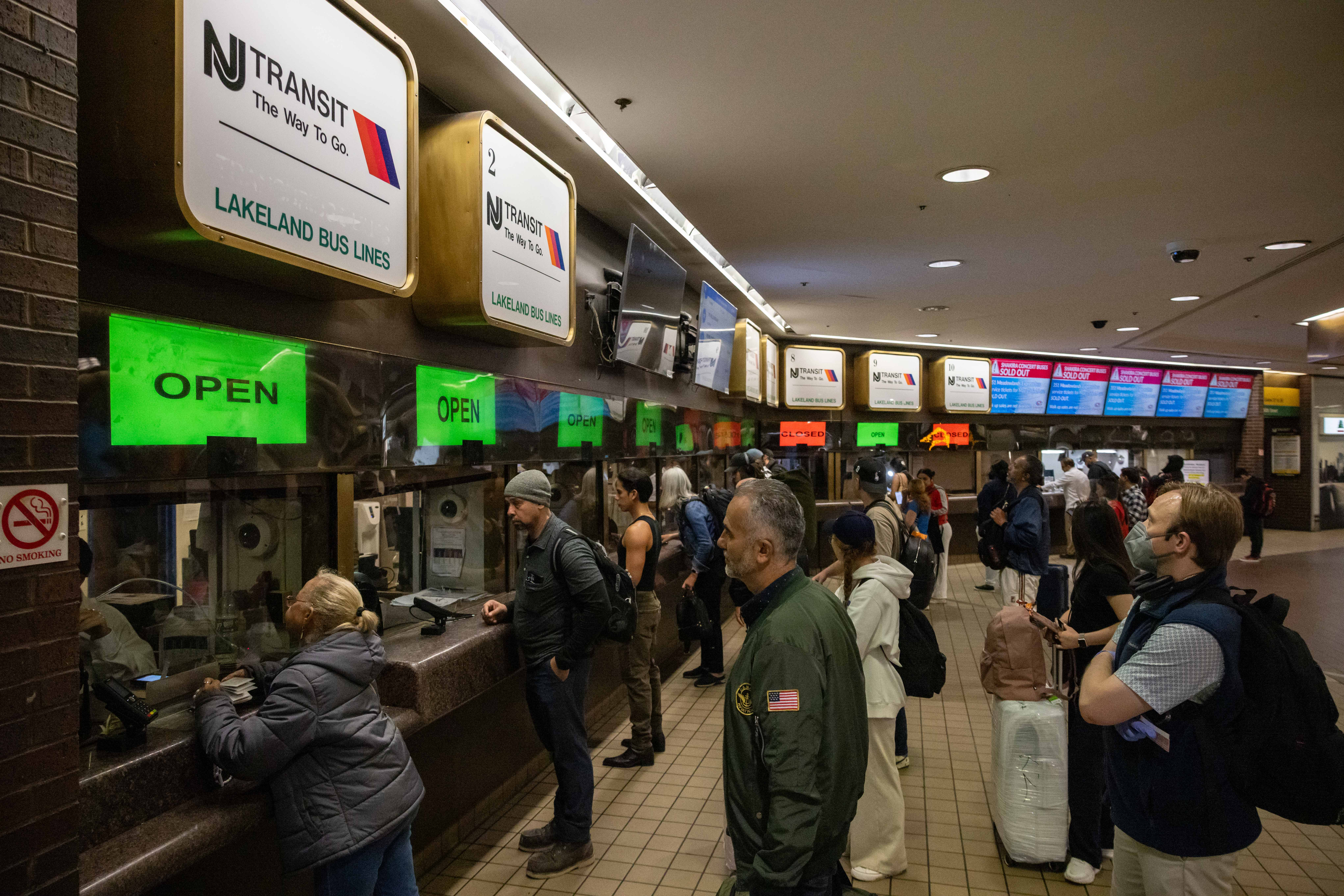NJ Transit Strike Looms: Will YOU Be Stranded? Plan Now!
NJ Transit Rail Strike Looms: Will Your Commute Be Stranded?
The Midnight Deadline: NJ Transit Issues Urgent Warning
Tick-tock, tick-tock... the clock is ticking for NJ Transit commuters. Just hours before the potential first rail strike in decades, NJ Transit issued a critical service advisory Thursday, urging its hundreds of thousands of customers to hustle – to reach their destinations before the stroke of midnight. Why the urgency? Because at 12:01 a.m. Friday, engineers with the Brotherhood of Locomotive Engineers and Trainmen (BLET) are poised to walk off the job, throwing a wrench into the daily lives of approximately 350,000 commuters. Are you ready for the disruption?
A Looming Crisis: What's at Stake?
A walkout would bring all NJ Transit commuter trains to a screeching halt. Imagine the chaos! Think about the ripple effect – missed appointments, late arrivals, and a whole lot of stressed-out New Jerseyans. The agency is scrambling, trying to avert disaster, but the threat is very real.
The Official Word: NJ Transit's Plea
“We understand the inconvenience this may cause and appreciate your patience and understanding as we work towards a resolution,” the agency stated in its service advisory. It’s a polite way of saying, “Brace yourselves, folks, this could get ugly.” The agency also strongly suggests working from home starting Friday, if at all possible. Is that a viable option for you? If not, keep reading!
Understanding the Brotherhood of Locomotive Engineers and Trainmen (BLET)
Who are these engineers, and why are they threatening to disrupt the lives of so many? The Brotherhood of Locomotive Engineers and Trainmen represents the dedicated individuals who operate the trains. They're essential to keeping the system running, and their concerns need to be addressed. The current labor dispute suggests that those concerns haven’t been adequately met.
The Contract Dispute: What's the Holdup?
Details surrounding the specific contract demands haven’t been released entirely to the public, but it's safe to assume issues like wages, benefits, and working conditions are at the heart of the impasse. Negotiations are likely ongoing, even as the strike deadline approaches. Can a last-minute deal be struck? Only time will tell.
NJ Transit: A Vital Lifeline
NJ Transit isn’t just another transportation system; it’s the lifeblood of New Jersey. As the nation’s third-largest transit system, it operates buses and rail lines throughout the state, facilitating nearly 1 million weekday trips. Many of these trips involve journeys into New York City, making NJ Transit indispensable for commuters.
The Impact on New York City
The implications extend beyond the borders of New Jersey. A rail strike would have a significant impact on New York City, too. Consider the thousands of New Jersey residents who rely on NJ Transit to get to their jobs in the city. Without those trains, the city's economy could suffer.
Alternative Transportation Options: Your Backup Plan
Buses: A Potentially Crowded Alternative
NJ Transit buses will continue to operate, but expect increased ridership and potentially longer travel times. Imagine packed buses and traffic congestion. Not exactly a smooth commute, is it?
Ride-Sharing Services: Surge Pricing Alert!
Uber and Lyft will undoubtedly see a surge in demand, which means surge pricing. Be prepared to pay a premium if you choose this option. It’s like paying extra for the privilege of navigating the chaos.
Carpooling: Team Up and Save
Consider carpooling with colleagues or neighbors. It's a cost-effective and environmentally friendly solution. Think of it as a collaborative effort to overcome the transportation hurdle.
Working from Home: The Most Convenient Option?
If your job allows, working from home is the most convenient option. Avoid the commute altogether and enjoy the comfort of your own space. However, for many, this isn't possible.
The Economic Repercussions
Beyond individual inconveniences, a rail strike can have broader economic repercussions. Businesses could face disruptions, and the overall economic productivity of the region could decline. It's a domino effect, and no one wants to see it happen.
Historical Context: A Rare Occurrence
The fact that this is the first potential rail strike in decades underscores the severity of the situation. These types of disruptions are relatively rare, highlighting the importance of reaching a resolution. It serves as a reminder of the power of unions and the need for fair labor practices.
Staying Informed: Where to Get Updates
Stay informed by following NJ Transit’s social media channels and checking their website for updates. Real-time information is crucial during times of uncertainty. Don't rely on hearsay; get your information from reliable sources.
What Can You Do?
While individual commuters can’t directly influence the negotiations, they can plan ahead, be patient, and support efforts to find a resolution. Understand that this is a challenging situation for everyone involved, including NJ Transit and the unions.
The Future of NJ Transit: A Call for Collaboration
This situation highlights the need for ongoing collaboration between NJ Transit and its unions. Open communication and a willingness to compromise are essential for preventing future disruptions. A reliable and efficient transit system is vital for the region's economic success.
Conclusion: Navigating the Uncertainty
The looming NJ Transit rail strike presents a significant challenge for commuters and the region as a whole. With the potential walkout just hours away, it's crucial to stay informed, plan alternative transportation, and remain patient. The situation underscores the importance of constructive labor relations and a commitment to finding solutions that benefit both workers and the public. Hopefully, a resolution can be reached soon to avert a major disruption.
Frequently Asked Questions (FAQs)
Here are some frequently asked questions to help you navigate this uncertain situation:
-
What happens if the strike starts and I'm already on the train?
NJ Transit has not explicitly stated their plan for trains already in transit, but it is highly likely that service will be suspended at the nearest safe location. Be prepared for delays and alternative transportation arrangements.
-
Will NJ Transit buses be affected by the rail strike?
No, NJ Transit buses will continue to operate, but expect increased ridership and potential delays due to higher demand.
-
How can I stay updated on the status of the negotiations and potential strike?
The best way to stay informed is to monitor NJ Transit's official website and social media channels for the latest updates. Local news outlets will also provide coverage of the situation.
-
Are there any refunds or reimbursements for unused train tickets if the strike occurs?
NJ Transit typically has policies in place for service disruptions. Check their website for specific information regarding refunds or reimbursements for unused tickets during a strike.
-
What if I absolutely have to get to New York City during the strike? What are my best options?
Consider a combination of options. Bus service to the Port Authority Bus Terminal is one. Carpooling to a PATH train station (if PATH is operating normally) is another. Finally, you could drive into the city and park, although that will likely be expensive and congested.

